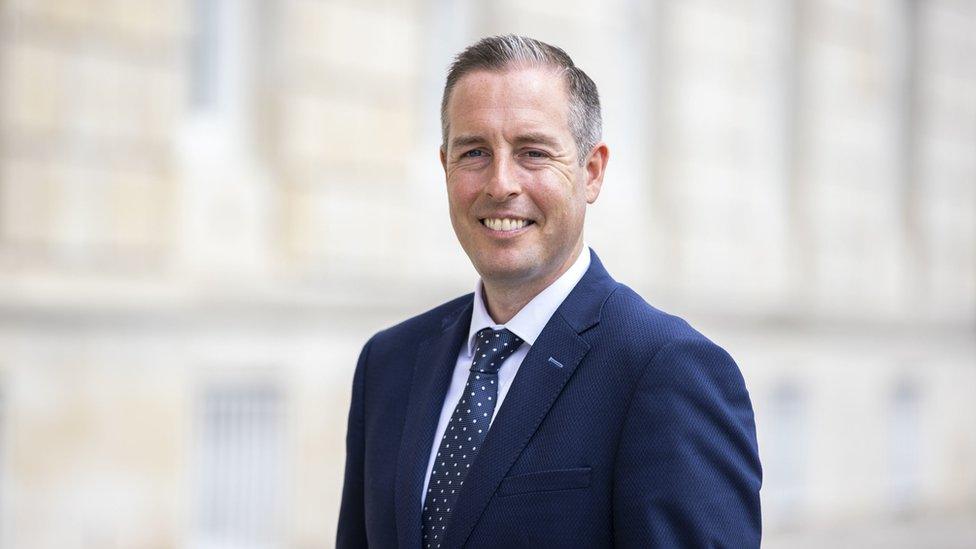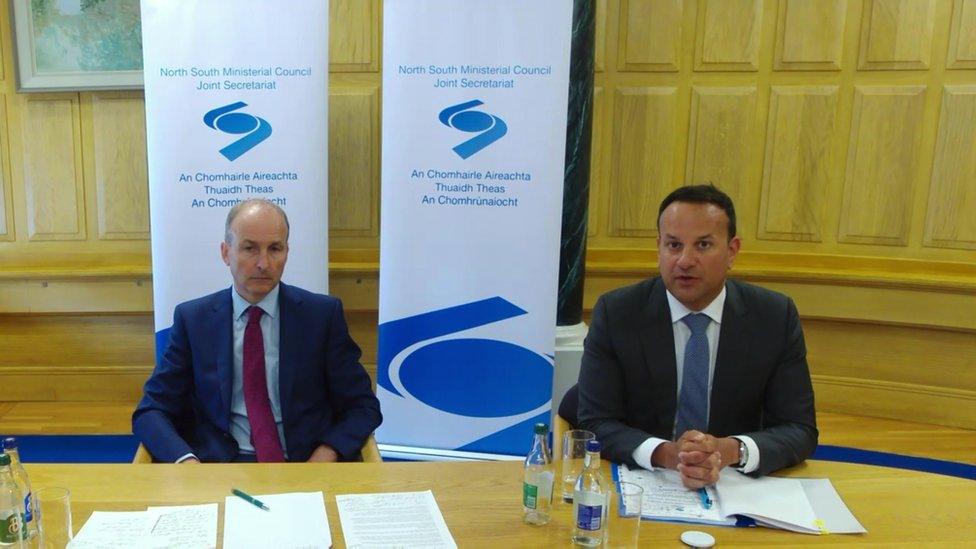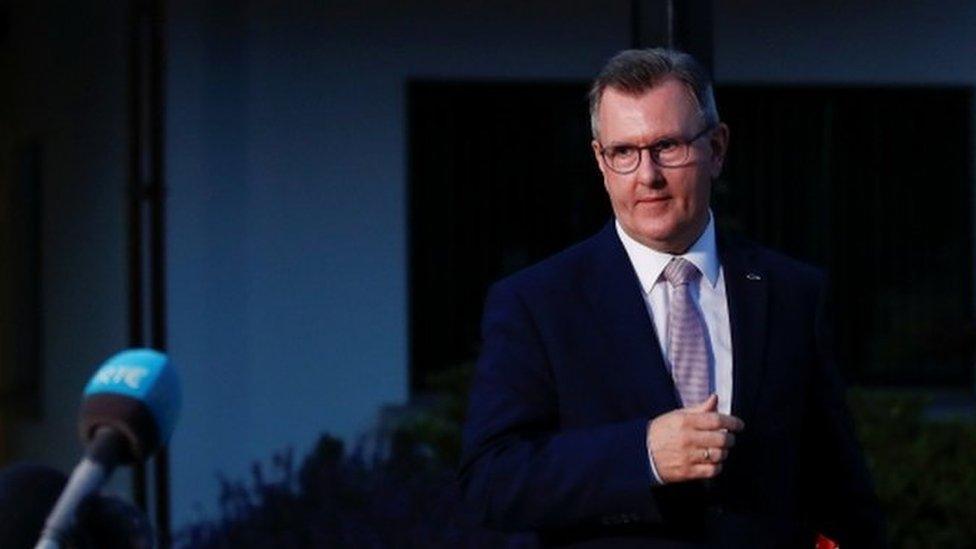NI Protocol issues raised at north-south meeting
- Published

Trucks arriving at Larne port in County Antrim
The first minister says a window of opportunity now exists to address issues caused by the Northern Ireland Protocol.
Paul Givan spoke after a virtual meeting of the North-South Ministerial Council today.
He said the British government recognised the harm it had caused and the EU had suspended legal action.
The Protocol was not on the meeting's agenda, but was raised by Deputy First Minister Michelle O'Neill.
The Sinn Féin vice president said she had raised it because of concerns coming into autumn when the so called grace periods are due to end.
She added that those who helped deliver the hardest possible Brexit "have to shoulder some of the responsibility for where we are".
Mr Givan said there now needs to be "constructive engagement" between the two sides.
"Obviously the Irish Government have a very important role in influencing how the European Union conducts is approach to addressing those issues," he said.
"The DUP want to see progress over the coming months. There's a window of opportunity for that to happen.
"But where East-West relationships are damaged at a political, economical societal level, of course, that has a knock-on effect when it comes to the way in which the Belfast Agreement was very carefully constructed."

Paul Givan said there needed to be constructive engagement between the UK and EU over the Protocol
The Northern Ireland Protocol was agreed by the UK and EU to avoid a hard border in Ireland.
It does that by keeping Northern Ireland in the EU's single market for goods.
That has created a new trade border in the Irish Sea, causing some difficulties in moving goods from Great Britain to Northern Ireland.
As part of its five point plan to oppose the Protocol the DUP said its involvement in north-south meetings may be affected
The party said it was taking part in today's meeting because the Protocol was not on the agenda.

The virtual meeting was hosted by Taoiseach Michaél Martin and the tánaiste Leo Varadkar
The Tánaiste (deputy prime minister) Leo Varadkar said the Protocol came about because of the decision by the British people to leave the EU and the subsequent commitment by the British government it would not result in a hard border "and those are just the facts of the situation".
Paul Givan said his family originally came from County Monaghan adding "we do have those fraternal connections and it's important that they're protected, but the Protocol has caused huge damage and that needs to be addressed".
Friday's virtual gathering was hosted by Taoiseach Michaél Martin.
It heard from both chief medical officers in Belfast and Dublin, and ministers compared notes on restrictions that have been eased.
There were also discussions about cross-border infrastructure projects and peace funding.
The 26th plenary meeting of the council was due to be held in Armagh in June but it was called off at the last minute after Edwin Poots quit as DUP leader. He was later replaced by Sir Jeffrey Donaldson.
Ahead of the meeting Sir Jeffrey said there could not be a "business as usual" approach because of outstanding issues regarding the protocol.
"Whilst this meeting is taking place within the current context, the next few weeks will determine the type of relationship we are able to have north-south," he said.
"The Irish government in particular need to understand that the more harm is done to our relationship with the rest of the UK, the more harm will be done to our relationship with them."
Sir Jeffrey Donaldson's comments were criticised by the Infrastructure Minister and SDLP deputy leader Nichola Mallon who called them "disappointing" and said that they risked undermining powersharing.
"Those who seek to reduce our obligations under the Good Friday Agreement and to the public, tread a dangerous path and should think twice before pursuing a reckless strategy," she said.
"Powersharing isn't a concept. It is the basis of our peace, in the north, across and between these islands.
"If anyone thinks they can frustrate or undermine it, let them heed this warning, it will be resisted."
- Published30 June 2021

- Published2 February 2024
